A few words about
Networking visit to Granma Province.
June 2023
In June 2023, three researchers from the UK – Stephen, Rosi and Par – visited Granma, spending time in the municipalities of Bartolomé Masó, Manzanillo and Bayamo. For Stephen, an autistic researcher from the Centre for Autism Studies at Sheffield Hallam University, it was his first time in Cuba. For Par, director of the Centre for Research on Cuba at the University of Nottingham and an expert on Cuban culture, it was the first time looking at participatory culture from the perspective of disability.
Bartolomé Masó
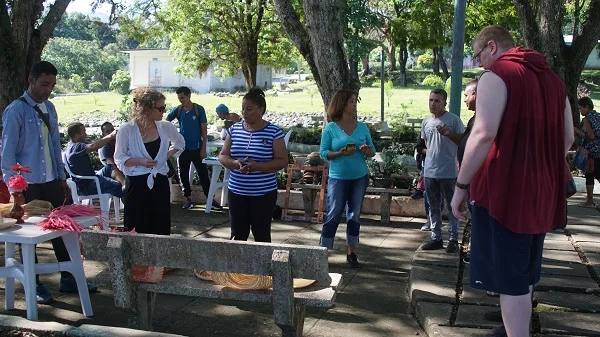
In Bartolomé Masó municipality, with guidance from the local coordinator Leticia García, the UK team visited the mountain community of Las Mercedes. The visitors met local residents and leaders of the consejo popular to share experiences of disabled people’s local participation. Residents shared their cultural traditions, such as grinding coffee using a Pilón, as well as musical performances and a chance to visit a tank used by Che Guevara. Disabled artists and artisans displayed their work, much of it facilitated by a previous international collaboration with Humanity & Inclusion that provided kits and training to support disabled people to start small businesses.
Together with Mariela Cutiño, provincial head of the Department of Special Education, they also visited a local specialist school for learning disabled children and adolescents. At the school, which is housed at the beautiful Camilo Cienfuegos School City, staff and pupils shared their educational approaches, cultural performances and vocational training in trades and horticulture.
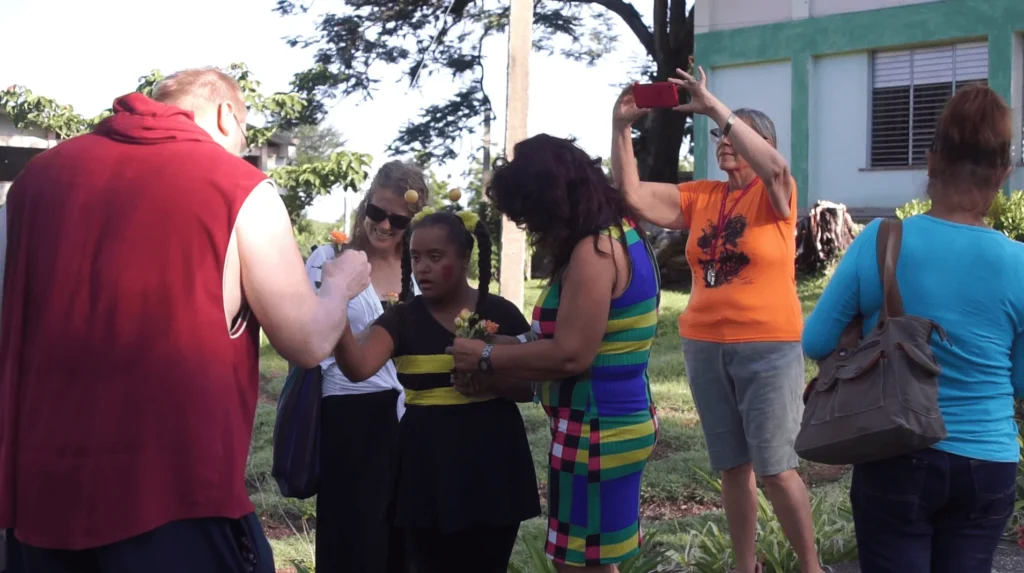
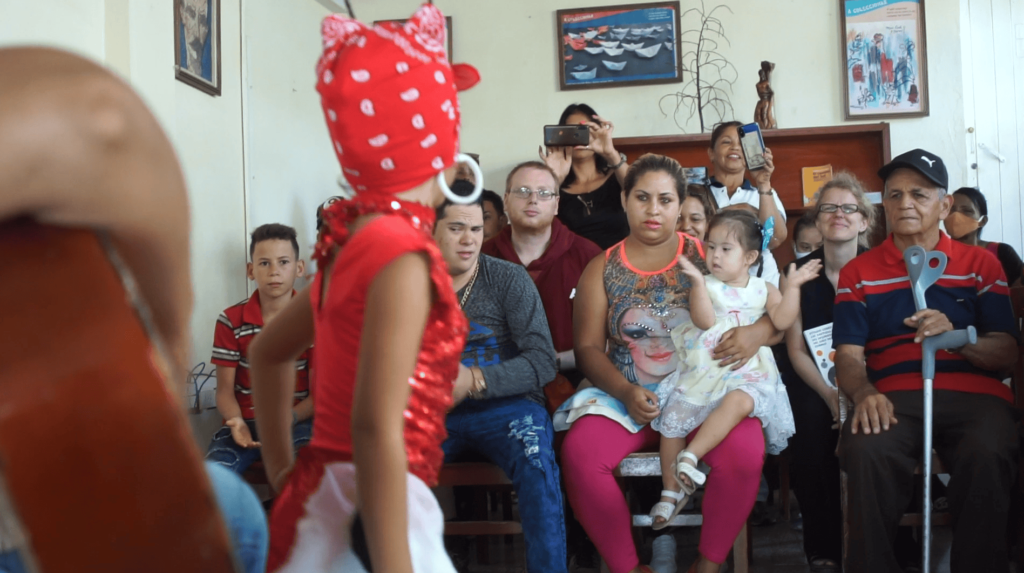
At the local library, which is a vital resource for community activity and outreach in the municipality, the team met participants, parents and facilitators of ‘Aprendiendo a Crecer’ (learning to grow) a social and cultural project for children and young adults with Down Syndrome and their families led by Inoelva Mesa Castro. The project, which has been active for more than 20 years, with some participants members of the group from its birth, has been pivotal in removing stigma and barriers to participation in rural communities.
Stephen, who specialises in disability sports, exchanged experiences with current and former professional and amateur disabled sportspeople, including martial artists, swimmers and athletes.
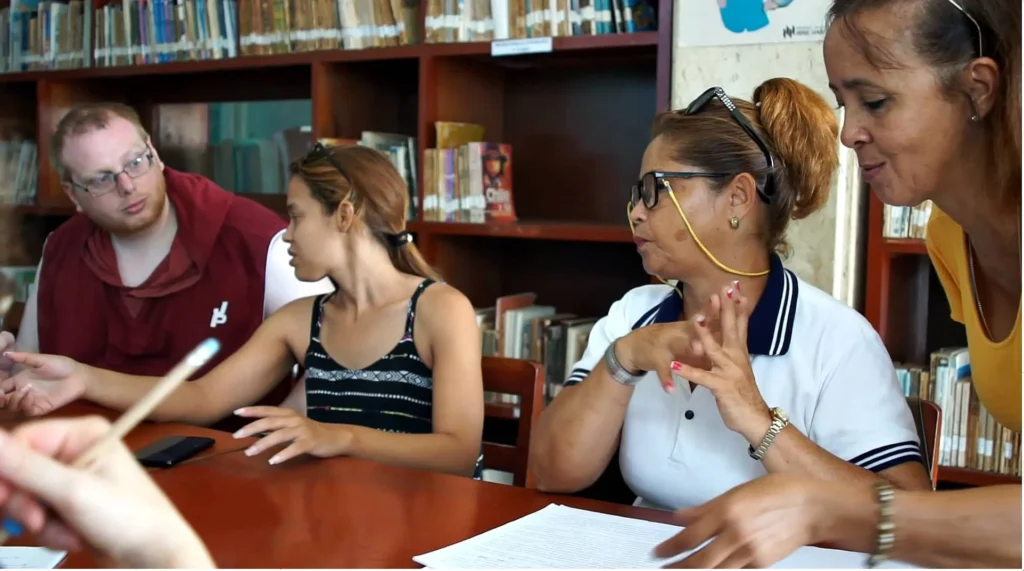
Manzanillo
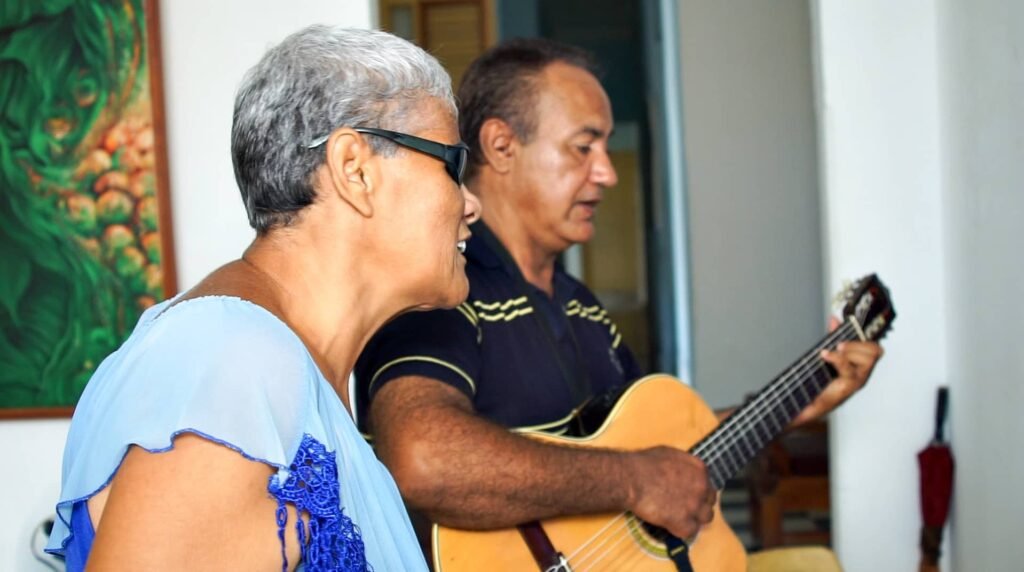
In Manzanillo, the UK team met with leaders and core members of the disabled-led disability organisations (ACLIFIM, ANSOC and ANCI) at UNEAC (Cuban Association of Writers and Artists). There were cultural performances of music, poetry and magic. Organisation leaders shared their proposals for UK-Cuban collaborations, which included yoga workshops, artistic collaborations and the dream of an international festival of D/deaf magicianss.
Bayamo
In Bayamo, the provincial capital, as well as holding the conference ‘Cultures of Participation’, the UK team visited the headquarters of ACLIFIM to hear about the work of the different disability organisations. At the Ministry of Work and Social Security, we discussed the development of ACPDI, the new organisation led by learning disabled people and their families, with the national president phoning in. The group shared their work so far, as well as work from other municipalities promoting the inclusion of autistic young people using personalised games.
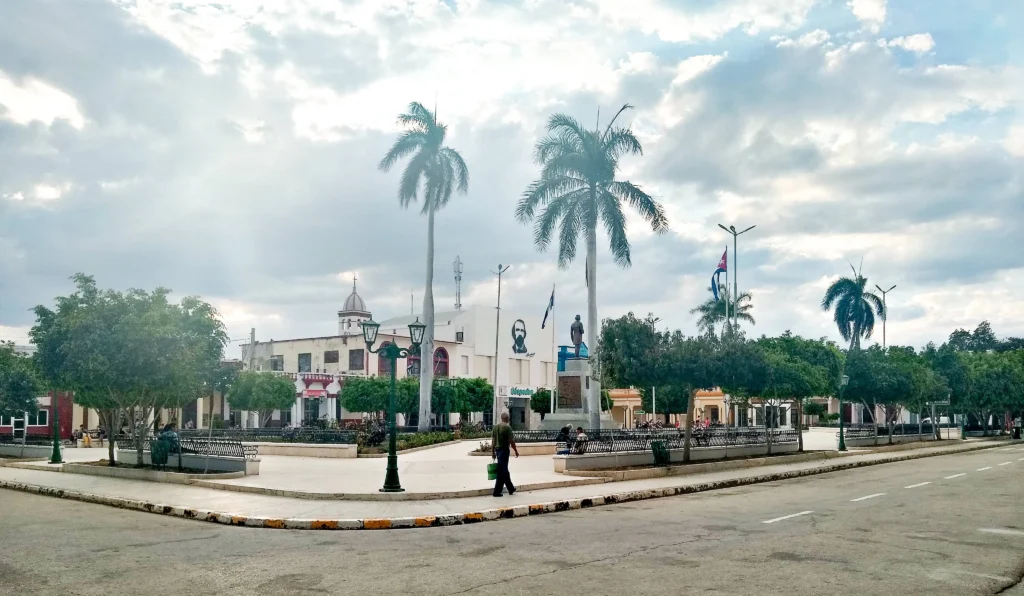
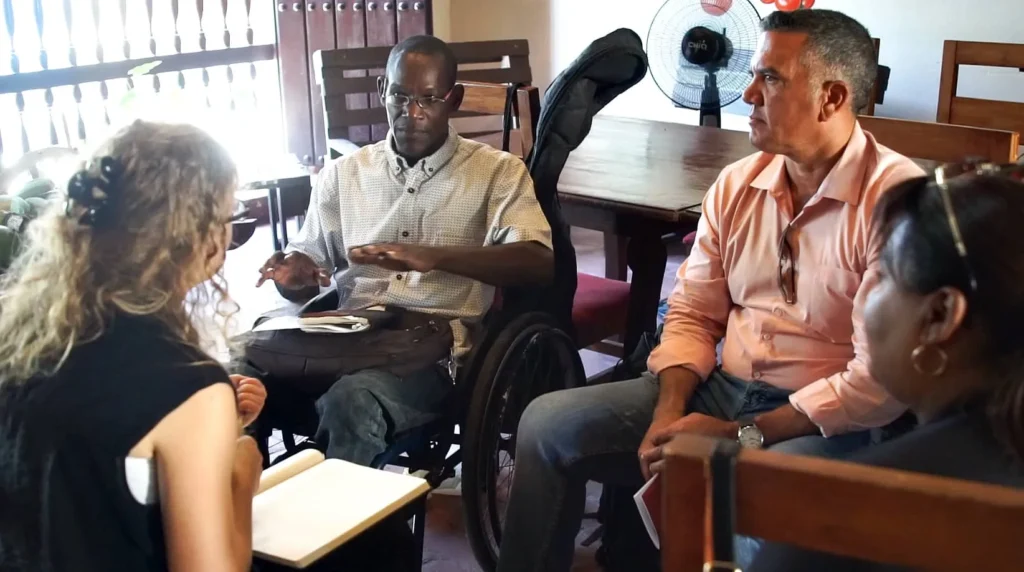
The steering group, which includes academics, leaders of the disability organisations and representatives from the departments of special education and work and social security, met to discuss our progress and plans. We also worked together to assess and discuss 15 different proposals for collaboration that had come from different actors in the three municipalities.
Testimonials
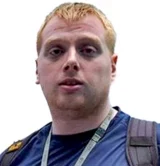
Having never been away from home, I was not sure what to expect travelling to Cuba, but it was an experience I’ll never forget. Aside from the heat that nothing could have prepared me for, the cultural difference was staggering. I found that everyone was very welcoming and would go above and beyond to help you – something which I found crossed over in to the SEND system, where the focus was on helping the children thrive. Experiencing the approach to supporting disabled people, not only in education but in all facets of life, was something that I’ve taken away and reflect upon in my work in the UK. Most notable is the placing of culture at the heart, which often includes a creative outlet and is something which is often missing in the UK. Additionally, I find myself reflecting on the pragmatic approach taken to all aspects of life, which again includes supporting disabled people to thrive. It was a delight to see how simple and practical action would be carried out to best help a person or group of people, where in the UK often disabled people and their families are frustrated by the lack of pragmatic common sense. This was particularly obvious when meeting with Cuban disability organisations and hearing about their work in the community. As someone how does similar in the UK, I could not imagine the level of red tape that we would have to navigate to have anywhere near the same impact in our community
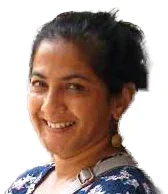
I think most of all, it has given me the opportunity to think more deeply about the question of disability. I've learnt an awful lot about understandings of disability, behaviours around disability, inclusion and exclusion. It's been really, really interesting for me to do that. I think from a personal but also from a research point of view in terms of questions of participation, questions of inclusion, which are of interest to me academically as well as in my own life. Above and beyond that, it's been really interesting for me to think how I can contribute to the project, specifically in terms of introducing the idea of epistemologies, of how we understand these things, how we approach them, the normative assumptions that we apply. It has been really helpful to me in my own work in terms of decolonising my work and decolonising approaches to Cuban studies more generally. And then there's another aspect to it, which I think is to do with questions of identity and cultures of participation. The workshop that we had in Bayamo for me was really illuminating because it made clear to me the differences, but also the possibility for collaboration or cooperation or sort of co-understanding of completely different contexts
